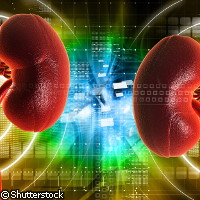Europeans decipher signature of kidney transplant tolerance
Most kidney transplant patients have to take heavy immunosuppressive medication to make sure their body does not reject the new organ. But a few lucky ones can live perfectly well without the drugs. An EU-funded team of scientists has now found out what exactly is so special about them. The five-year RISET ('Reprogramming the immune system for establishment of tolerance') project received EUR 12.46 million under the 'Life sciences, genomics and biotechnology for health' Thematic area of the Sixth Framework Programme (FP6) to translate the advances in research into clinical practice and industrial development. The findings were published in the Journal of Clinical Investigation. Kidney transplants save thousands of lives every year. Unfortunately, the ensuing immunosuppressive treatment can be toxic for the patient, and cause infections or tumours. 'Astonishingly, there are rare individuals who seem to develop tolerance naturally after a kidney transplant,' explained Dr Maria Hernandez-Fuentes, a researcher at King's College London in the UK and member of the RISET consortium. 'This is usually only revealed when unexpectedly organ rejection does not take place if they have to stop taking their immunosuppressive drugs for some reason.' This is more common in liver recipients, and especially unusual for kidney transplants. Several research units across the EU joined forces to spot these exceptional recipients, and involved 11 of them in the research. The RISET consortium, made up of 26 partners from 9 European countries including Belgium, the Czech Republic and Italy, then compared this group of 11 tolerant patients to other groups of patients: a second group of stable transplant patients that was still taking immunosuppressive therapy; a third group that appeared to reject the kidney despite the immunosuppressive treatment; and a fourth group of healthy volunteers. The researchers ran a series of detailed laboratory tests to identify any characteristics that made the first group stand apart. They found a 'tolerance fingerprint' - a specific set of immunological markers in the blood. For instance, tolerant patients had a higher number of peripheral blood B and 'natural killer' lymphocytes (the white blood cells that defend the body against infections). In addition, tolerant patients had fewer activated CD4+ (cluster of differentiation 4 co-receptor) helper T cells, which play a crucial role in the body's immune system. Also, in the majority of tolerant recipients, the scientists could not detect any specific antibodies against the donor cells. Importantly, this set of markers has also been confirmed in a group of similar patients in the US. These findings could be extremely helpful to thousands of kidney recipients who must take drugs for the rest of their lives, and suffer from complications. The RISET project focuses on the real-life validation of this research, and its application from the lab bench into hospital practice. This should enable doctors to deliver more personalised care to kidney transplant patients in future; once they are able to screen patients for these markers, doctors will be able to identify those who can live without immunosuppressants and/or those who can decrease their doses safely. For now, Dr Rachel Hilton, a co-author of the study from Guy's Hospital in London in the UK, insists that 'transplant recipients do not stop taking their immunosuppressive treatment on the back of these research findings'. Ultimately though, the RISET researchers believe that these scientific findings could allow them to induce tolerance in kidney recipients. They hope to be able to reprogram the immune system to obtain the special tolerance signature.



